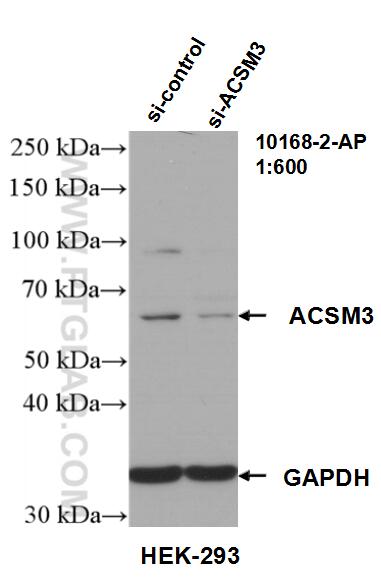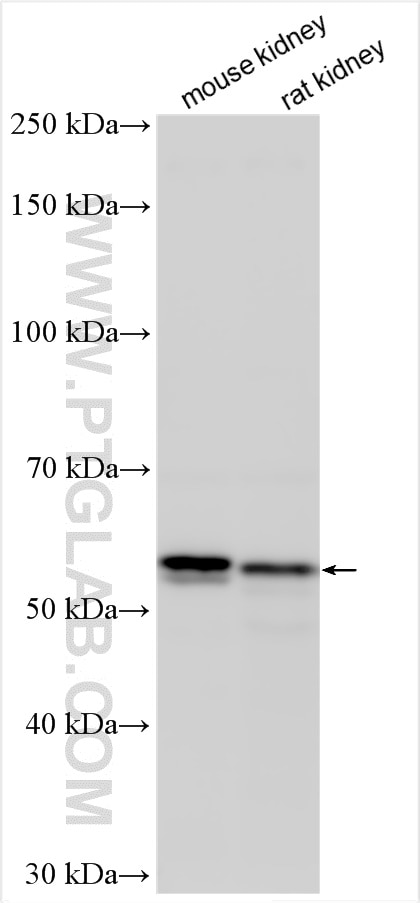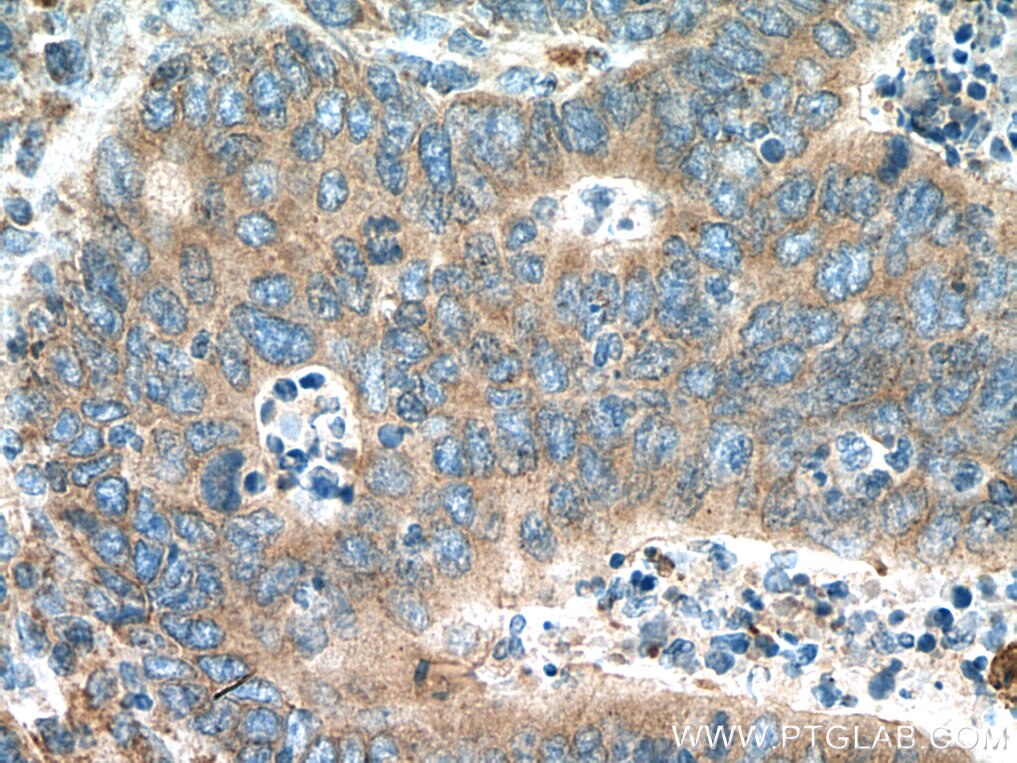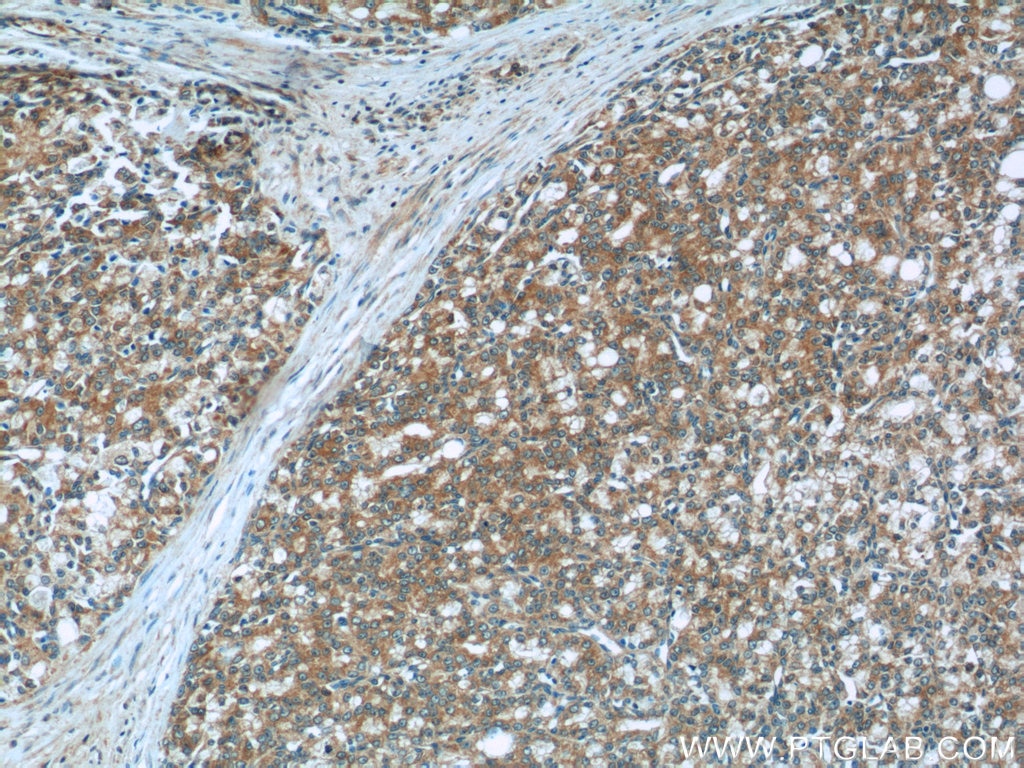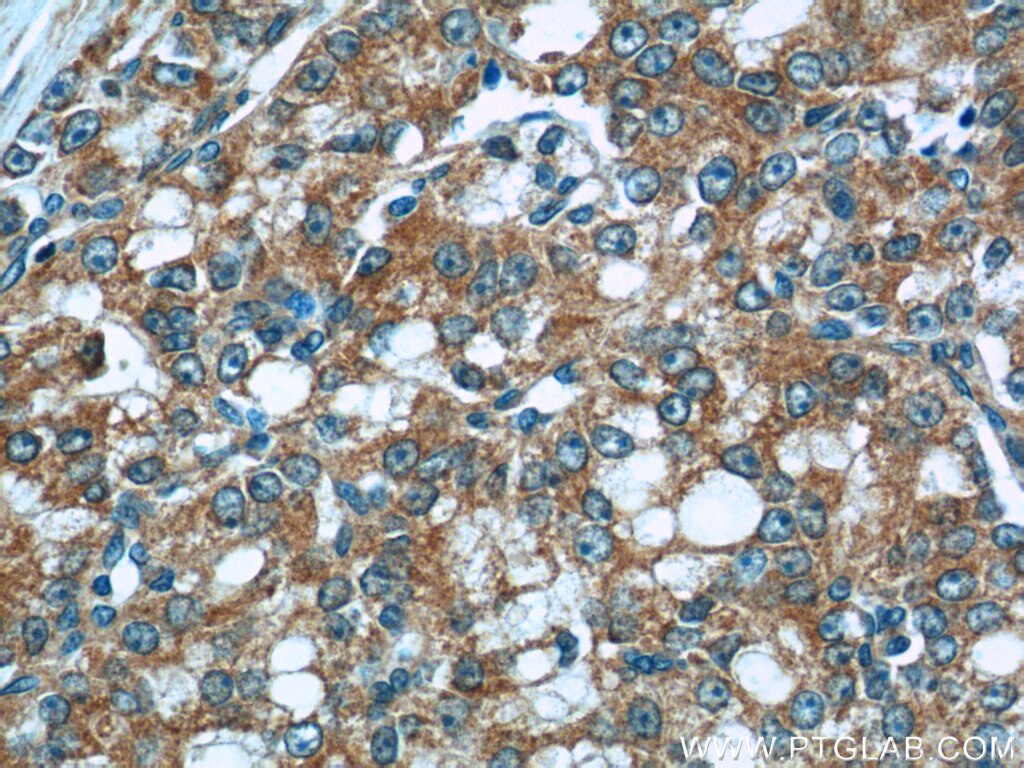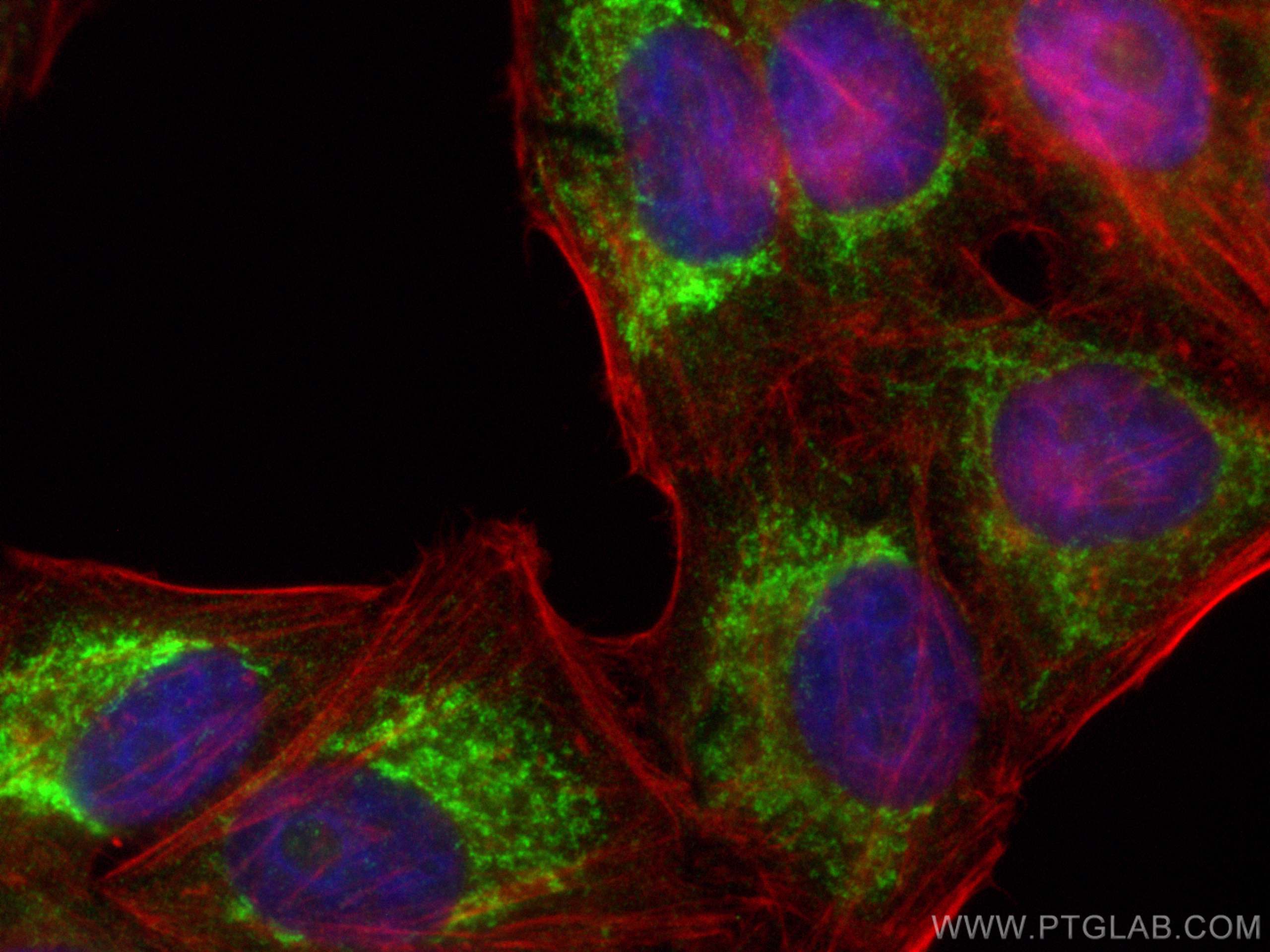- Phare
- Validé par KD/KO
Anticorps Polyclonal de lapin anti-ACSM3
ACSM3 Polyclonal Antibody for WB, IHC, IF/ICC, ELISA
Hôte / Isotype
Lapin / IgG
Réactivité testée
Humain, souris
Applications
WB, IHC, IF/ICC, ELISA
Conjugaison
Non conjugué
N° de cat : 10168-2-AP
Synonymes
Galerie de données de validation
Applications testées
| Résultats positifs en WB | tissu rénal de souris, cellules HEK-293, tissu rénal de rat |
| Résultats positifs en IHC | tissu de cancer du côlon humain, tissu de cancer de la prostate humain il est suggéré de démasquer l'antigène avec un tampon de TE buffer pH 9.0; (*) À défaut, 'le démasquage de l'antigène peut être 'effectué avec un tampon citrate pH 6,0. |
| Résultats positifs en IF/ICC | cellules HepG2, |
Dilution recommandée
| Application | Dilution |
|---|---|
| Western Blot (WB) | WB : 1:1000-1:4000 |
| Immunohistochimie (IHC) | IHC : 1:50-1:500 |
| Immunofluorescence (IF)/ICC | IF/ICC : 1:50-1:500 |
| It is recommended that this reagent should be titrated in each testing system to obtain optimal results. | |
| Sample-dependent, check data in validation data gallery | |
Applications publiées
| WB | See 4 publications below |
| IHC | See 3 publications below |
| IF | See 1 publications below |
Informations sur le produit
10168-2-AP cible ACSM3 dans les applications de WB, IHC, IF/ICC, ELISA et montre une réactivité avec des échantillons Humain, souris
| Réactivité | Humain, souris |
| Réactivité citée | Humain, souris |
| Hôte / Isotype | Lapin / IgG |
| Clonalité | Polyclonal |
| Type | Anticorps |
| Immunogène | ACSM3 Protéine recombinante Ag0224 |
| Nom complet | acyl-CoA synthetase medium-chain family member 3 |
| Masse moléculaire calculée | 49 kDa, 66 kDa |
| Poids moléculaire observé | 60-70 kDa |
| Numéro d’acquisition GenBank | BC002790 |
| Symbole du gène | ACSM3 |
| Identification du gène (NCBI) | 6296 |
| Conjugaison | Non conjugué |
| Forme | Liquide |
| Méthode de purification | Purification par affinité contre l'antigène |
| Tampon de stockage | PBS with 0.02% sodium azide and 50% glycerol |
| Conditions de stockage | Stocker à -20°C. Stable pendant un an après l'expédition. L'aliquotage n'est pas nécessaire pour le stockage à -20oC Les 20ul contiennent 0,1% de BSA. |
Informations générales
SA hypertension-associated rat homolog (SAH, synonym: SA) is expressed at 10-fold greater levels in the kidney of the spontaneously hypertensive rat than in the corresponding wild-type strain. The gene is linked to blood pressure levels in a number of crosses involving the spontaneously hypertensive rat and other strains of genetically hypertensive rats. Human SAH gene polymorphism may be associated with the renal prognosis of immunoglobulin A nephropathy through its effect on blood pressure. Furthermore, variation in SAH has a role in predisposition.
Protocole
| Product Specific Protocols | |
|---|---|
| WB protocol for ACSM3 antibody 10168-2-AP | Download protocol |
| IHC protocol for ACSM3 antibody 10168-2-AP | Download protocol |
| IF protocol for ACSM3 antibody 10168-2-AP | Download protocol |
| Standard Protocols | |
|---|---|
| Click here to view our Standard Protocols |
Publications
| Species | Application | Title |
|---|---|---|
Front Cell Dev Biol Predicting Panel of Metabolism and Immune-Related Genes for the Prognosis of Human Ovarian Cancer. | ||
Front Oncol The Overexpression of Acyl-CoA Medium-Chain Synthetase-3 (ACSM3) Suppresses the Ovarian Cancer Progression via the Inhibition of Integrin β1/AKT Signaling Pathway. | ||
Sci Rep Thioesterase induction by 2,3,7,8-tetrachlorodibenzo-p-dioxin results in a futile cycle that inhibits hepatic β-oxidation. | ||
Eur J Cell Biol Proteomic and cell biological profiling of the renal phenotype of the mdx-4cv mouse model of Duchenne muscular dystrophy. | ||
Exp Ther Med ACSM3 suppresses proliferation and induces apoptosis and cell cycle arrest in acute myeloid leukemia cells via the regulation of IGF2BP2 |
